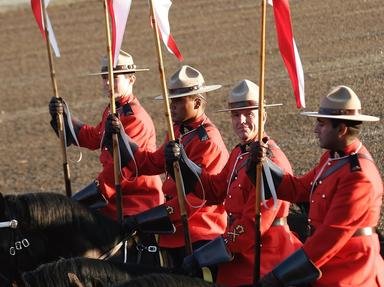Quiz Answer Key and Fun Facts
1. In existence primarily from 1806 until 1810, what was 'Le Canadien'?
2. The War of 1812 was brought to an official end in 1815 with a treaty named for which city?
3. Later to become the University of Toronto, what was the name of this institute of learning when it was founded in 1827?
4. Which canal was officially opened in 1832 and was designated a UNESCO World Heritage Site in 2007?
5. 1847 saw the establishment of the Labatt company. With which product is it associated?
6. In 1855, the name of Bytown was changed to which of these?
7. The Cariboo Gold Rush began in 1861 in which modern day province?
8. The forerunners of the Royal Canadian Mounted Police (RCMP) were founded in 1873 under which name?
9. Which man was tried, and then executed, for treason in 1885?
10. Canada's first Prime Minister, Sir John A. Macdonald, died in 1891. What was his profession before he entered politics?
Source: Author
rossian
This quiz was reviewed by FunTrivia editor
bloomsby before going online.
Any errors found in FunTrivia content are routinely corrected through our feedback system.

